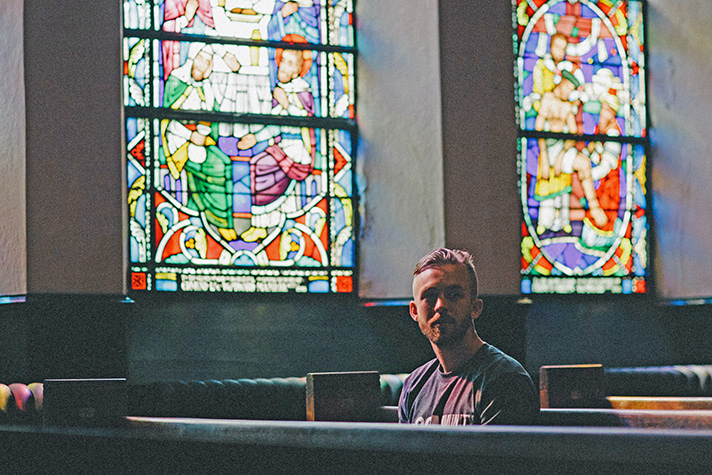
There is a place to observe struggling churches that don’t have it all together. It’s the New Testament.
This history book of the early church shows things the way they really were, complete with greedy people, religious crazies, hurt feelings and racial prejudices–and these are the good guys! It’s one of the reasons I love the Scripture so much: it casts a cold hard stare on its subjects.
An Early Example of a Church in Conflict
For example, take the church in Corinth. There are plenty of Biblical resources available if you’re interested in a real “reality show.” The church in Corinth was a crazy mix of spirituality, worldliness, excess and beauty. In others words, a church very much like most churches in North America today.
The church in Corinth started off with a bang. God Himself spoke to the Apostle Paul in a vision: “Don’t be afraid, and don’t give up on this town,” God said. “I have a lot of people here” (Acts 18:9-10).
So “Apostle Paul” unpacked his suitcase and became “Pastor Paul” for a year and a half. Can you imagine having Paul of Tarsus, the towering colossus of Christianity as a pastor? This church must have been a model church right? Well, not exactly.
Paul invests 18 months of his life in these people, and then moves on to continue planting churches. Imagine the quality start the church in Corinth received: a year and a half of the very best in ministry, miracles and teaching. But after he leaves, Paul gets a note from the folks who meet at Chloe’s house, “Paul, there are few problems here we’d like to ask you about.”
A few problems? Let’s make a partial list:
- Believers in Corinth were “choosing sides” concerning who was the best spiritual leader: some said Paul, some Peter, some Apollos, and the really spiritual people said, “I only follow Jesus.”
- A regular attendee of the church was sleeping with his father’s wife (yikes!). Everyone who attended the church knew about it, but no one was doing anything about it.
- Church members were racing each other to courts of law because they couldn’t settle their disputes between one another inside the church.
- There were major arguments over who should eat what kind of food, and why.
- People were getting drunk at communion or the equivalent of a church “pot luck” dinner. I know that sounds hard to believe, but you can look it up: 1 Corinthians 11:20-21.
- We haven’t even touched on problems like worship services that were pretty strange: spiritual gifts, spiritual pride, arguments about dating, and incorrect views of the resurrection.
I don’t know where you go to church, but even the worst church in my town doesn’t come close to this list of problems in Corinth. If I want to gawk at a bunch of immature believers, I don’t even have to leave home. I can just open up my Bible and read about the church in Corinth.
Now, you might think that Paul wouldn’t have anything good to say to these believers. He had labored hard for a year and a half, and this was the fruit? What kind of words would he have for them?
- “I always thank God for you…”
- “You have been enriched in every way…”
- “You do not lack any spiritual gift…”
- “He will keep you strong until the end…”
And these words are just from the greeting in the letter–the first nine verses. Perhaps Paul was just being nice or diplomatic–except this is Paul writing Holy Scripture, and I don’t think the Apostle Paul told polite, white lies.
What Lessons Can We Learn From Struggling Churches?
For one, Paul didn’t give up on them. There was a lively correspondence that lasted for years. Paul was committed to them the rest of his life.
Second, even though they questioned Paul’s position and authority, Paul responded with a passion that reflected his true fatherhood. “You really are my children,” he said. Even though they were unfaithful to him, he remained faithful to them.
Next, Paul continued to teach patiently. Even the greatest church-planter in history had things to fix. If someone like Paul can produce a church like Corinth, perhaps we should cut some slack towards pastors who don’t rise to the level of super apostle.
Finally—and this is the most challenging to me—Paul let them continue to operate even though they were making mistakes. If I had started a church that later went crazy with spiritual gifts, I think I would have been tempted to write to them: “Everybody stop! You’re doing it wrong! Just cut it out until I get there, then we’ll talk about it.”
But Paul said, “Tongues are good, prophecy is good, and don’t forbid them.” Even though they were doing it wrong. The answer to the misuse of spiritual gifts isn’t to shut them down; it is to teach them up.
The church in Corinth is reality TV written down for us in the Bible, and if they can go down in history (and Scripture) as a church that God loves, a church to whom God speaks, and God nurtures, why can’t our churches be the same?
Ray Hollenbach, a native of Chicago, served as the pastor of Vineyard Campbellsville (KY) from 1997-2012.

